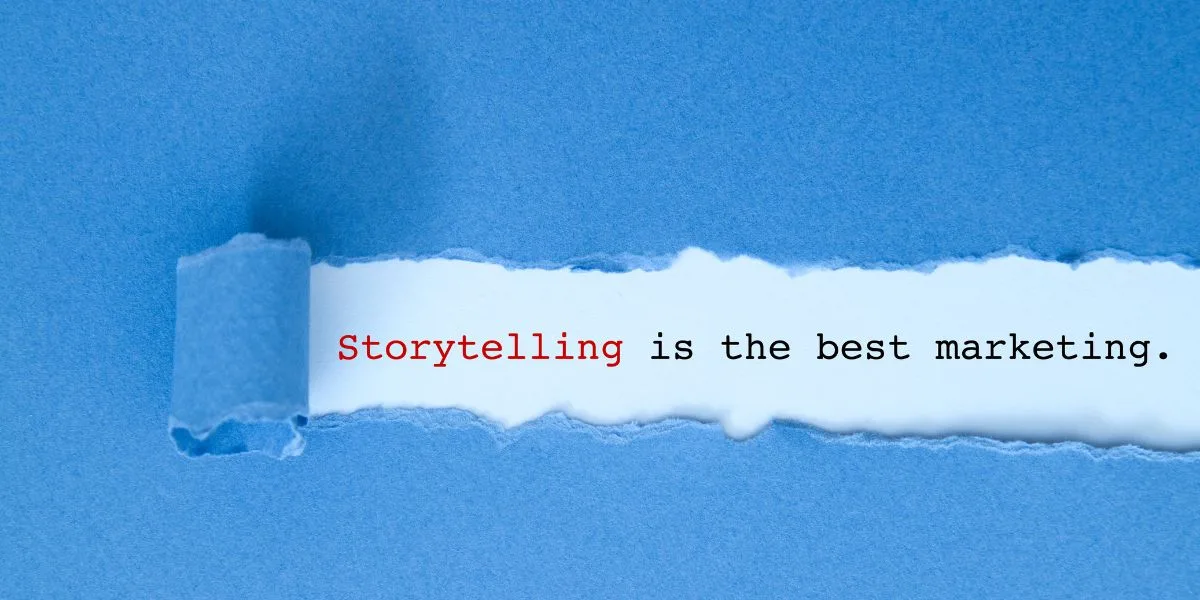Listen to this Article
In today’s fast-moving world, lead generation isn’t just a part of your marketing strategy, it is the strategy. Without a steady stream of new prospects, growth stalls. Whether you’re a financial advisor, attorney, Medicare agent, elective medical provider, senior living community, or preneed professional, your business depends on reaching the right people at the right time.
This guide explains what lead generation is, why it’s critical across industries, and how to build successful, data-driven lead generation strategies using scalable marketing campaigns for lead generation and multichannel lead generation campaigns that support long-term success.
What Is Lead Generation?
Lead generation is the process of attracting potential clients and getting them to show interest in your products or services. These leads can come from many places: online ads, social media, search engines, in-person events, webinars, and direct mail.
The goal is not to attract everyone—it’s to attract the right people. These are individuals who are more likely to become clients. That means better conversion rates and stronger returns.
Great lead generation strategies engage, educate, and convert. Start by knowing your ideal client. Then reach them where they are, both online and offline. Use demographic, behavioral, and geographic insights to create buyer personas that guide your messaging.
A lead isn’t a guaranteed sale. It’s someone who has shown interest, and now it’s your job to build a relationship. That could mean delivering more information, solving a pain point, or offering a consultation.

Why Lead Generation Matters Across Industries
Every industry needs strong lead generation strategies to stay competitive. But each has its own unique challenges. Here’s how smart, customized lead delivery for businesses helps different sectors grow.
Financial Advisors
Financial marketing requires trust. People want to work with someone they feel is reliable. Lead generation through in-person events and webinars, like retirement seminars, paired with direct mail, online ads, and follow-up, builds strong pipelines.
Example: A financial advisor targets people age 55+ with direct mail and online ad invites to a retirement seminar. Those who attend are followed up with by phone and email. This data-driven lead generation strategy leads to booked meetings and new clients.
Over time, this consistent outreach creates a funnel of qualified leads. Using CRM tools like Hub, the advisor can track lead behavior, segment contacts, and nurture them until they’re ready to convert.
Estate Planning & Elder Law Attorneys
Estate planning and elder law attorneys, in particular, benefit from educational events, digital outreach, and personal referrals.
Example: An elder law attorney hosts a free educational workshop on trust and estate planning at a local community center. Registrants receive follow-up materials and a chance to schedule a personal consultation. This positions the attorney as both a trusted expert and a valuable resource.
Trust and sensitivity matter. Legal cases, especially around aging and assets, require a personal touch. Automated intake systems, CRM tools, and nurturing campaigns help maintain timely, compassionate outreach.
Personal Injury Attorneys
Attorneys often help people in stressful situations. Legal lead generation must be fast and trustworthy. Digital ads, targeted landing pages, and local outreach are key. In-person events can also build authority.
Example: An auto injury attorney runs a social ad campaign targeting individuals recently involved in car accidents. Interested leads complete a short form outlining accident details. A follow-up call confirms their case and determines the next steps. This personalized outreach helps quickly qualify leads and increases the likelihood of converting them into clients.
Speed matters. Legal cases are often time-sensitive. Having a dedicated intake team or automated systems ensures timely responses and increases the chances of converting inquiries into signed clients.
Medicare Agents
Timing matters in Medicare. Agents must market all year, but especially during AEP. A mix of seminars, webinars, and digital ads forms a strong foundation for multichannel lead generation campaigns.
Example: An agent hosts monthly webinars for people turning 65. They use targeted mailers and Facebook ads to promote each session. Attendees receive follow-up emails with plan options and book 1:1 calls.
Success depends on consistency and compliance. Medicare marketing is highly regulated, so having clear messaging and proper disclaimers is key. CRM systems can track prospects by enrollment period, making outreach more relevant.
Preneed Providers
Preneed marketing is sensitive. Families often delay planning, so education is key. Direct mail, online tools, and lead generation through in-person events like planning seminars work well.
Example: A funeral home offers a free downloadable checklist. People who download it are added to an email series that educates and invites them to pre-planning events.
Tone and timing are essential. Instead of focusing on fear, messaging should emphasize peace of mind and family protection. Educational content builds trust, and gentle reminders can keep leads engaged over time.
Elective Medical Providers
Medical providers of large fee-based procedures face high competition. Many patients research extensively before choosing. To stand out, combine SEO, digital ads, webinars, and educational seminars as part of a data-driven, multichannel lead generation strategy.
Example: A dental office runs Google Ads promoting a free dental implant consultation. Leads fill out a form, then receive automated texts and emails encouraging them to book an appointment.
Reputation and reviews play a huge role. Many consumers check Google reviews and social proof before making decisions. Make it easy for satisfied patients to leave feedback and share their experiences.
Senior Living Communities
Marketing senior living options involves trust, education, and timing. Potential residents—and their families—often take time to research. In-person events, tours, online resources, and nurturing campaigns work together to support decision-making.
Example: A senior living community runs Facebook ads promoting a “Lunch & Learn” event. Attendees get a guided tour, hear from current residents, and receive a follow-up call to answer questions.
Empathy-driven messaging is key. Focus on quality of life, safety, and community. Consistent outreach through webinars, social media, and educational content helps maintain top-of-mind presence as families weigh their options.
Ready to Turn Leads into Clients?
Start building a lead generation strategy tailored to your industry. Our experts will help you identify the best channels, messaging, and timing for your audience. Let’s make your growth goals happen.
Building a Multichannel Lead Generation Strategy
Using just one channel for lead generation isn’t enough. People interact with businesses across platforms. The most successful strategies combine several methods to create a stronger impact.
Steps to build a multichannel strategy:
- Know Your Audience: Use data to define who you’re trying to reach, including income, needs, and behavior.
- Use Many Channels: Email, seminars, webinars, social media, SEO, your website, direct mail, and ads—combine them for maximum visibility.
- Offer Value: Give people a reason to connect—free guides, consultations, events, or webinars.
- Capture Leads: Use landing pages, lead forms, or phone calls to gather info.
- Follow Up Quickly: Respond fast with emails, calls, or texts. Leads go cold quickly.
- Track Results: Measure what works and improve it. That’s the foundation of scalable marketing campaigns for lead generation.
A true multichannel approach keeps your pipeline full and your message in front of the right people more often. Multichannel strategies improve visibility and create multiple touchpoints. When channels work together, your lead generation becomes more consistent and effective.

Marketing Strategy Tips for Long-Term Success
Short-term tactics may work once, but successful businesses build marketing strategies that continue to perform over time. The key is consistency, testing, and using data to evolve.
Start with these scalable strategies:
- Email Marketing: Delivers $36 for every $1 spent. Great for education and follow-up. Segment your lists to personalize messaging and boost open rates.
- Social Media: Builds brand presence and fosters connection. Use platforms where your audience already spends time—LinkedIn for professionals, Facebook for older audiences, Instagram or TikTok for younger demographics.
- SEO & Website: Ensure your site ranks, loads quickly, and answers real questions. Invest in local SEO, create helpful blog content, and optimize for mobile users.
- Seminars & Webinars: Powerful tools for lead generation through in-person events and webinars. Record webinars and repurpose them as gated content.
- Online Ads: Targeted Google and Facebook ads offer fast, trackable visibility. Retargeting ads keep your brand top-of-mind.
- Direct Mail: Still effective—especially with older or high-value audiences. Include a strong call-to-action and personalized touch.
Tips for Long-Term Marketing Success:
- Stay consistent. Make lead generation part of your weekly routine.
- Audience segmentation. Segment your audience by age, need, or interest. Targeted messaging drives conversions.
- Provide value. Educate before you sell.
- Use data. Never guess. Use your collected data to test, track, and improve campaigns.
- Experiment. Find what resonates with your audience. Is it blogs, videos, webinars, texts, quizzes?
- Automation. Consider marketing automation tools to handle repetitive tasks, schedule content, track behavior, and streamline follow-up.
- Content. Educate your audience through valuable content. From how-to blog posts to downloadable checklists and video explainers, content builds authority.
Strong marketing requires planning, patience, and persistence. When you implement scalable marketing campaigns for lead generation and stay consistent, you’ll build a predictable system that doesn’t rely on luck, it brings in qualified leads steadily.
Stop Guessing. Start Growing.
You don’t have to figure it out alone. Get a free consultation and discover how a data-driven, multichannel strategy can consistently bring in qualified leads.
Final Thoughts
Lead generation is the engine behind business growth. A well-built strategy connects you with the right people at the right time. Whether you’re in finance, law, Medicare, healthcare, senior living, or funeral services, multichannel marketing and personalized outreach make all the difference.
Ready to build your next campaign? Focus on the channels that work for you, create content that educates and builds trust, and always follow up. Because when your pipeline flows, your business grows.










